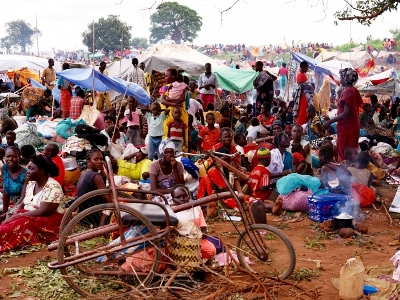UN welcomes S. Sudan’s directive on humanitarian access
November 19, 2017 (JUBA) – A United Nations official has welcomed South Sudan’s decision to allow free, unimpeded and unhindered movement of humanitarian organizations in the country.

“South Sudan’s humanitarian partners appreciate the step that President Kiir has taken to ensure the free movement of supplies and personnel, particularly at a time when food insecurity continues to deteriorate and humanitarian organizations face pressure to expand their response,” Noudehou said in a statement.
President Salva Kiir has ordered that all roadblocks be cleared immediately for international aid agencies to freely operate.
The decree, dated 9 November, came in the wake of numerous complaints from international aid agencies that found it hard to reach the most vulnerable people.
Noudehou, however, said he hopes the order will positively impact on reducing the many constraints faced by humanitarian partners that delay or prevent the provision of urgently needed help and which too often place humanitarian staff at risk.
“We look forward to seeing the order implemented on the ground swiftly and we will continue to work with all concerned authorities to ensure a safe and secure operational environment that is conducive to the timely delivery of humanitarian assistance to people in need,” he stressed.
A confidential UN report to the Security Council released last week accused South Sudan government of using food as a weapon of war to target civilians by blocking life-saving aid in some areas, allegations South Sudanese officials have dismissed.
Last month, a UN report said South Sudan’s government bears “primary responsibility” for incessant violence in the young nation.
The five-member panel established by the UN Security Council cited an absence of political will to implement a 2015 peace agreement and to address “the destructive governance practices and historical grievances that continue to drive the conflict in South Sudan.
The experts attributed these failures to the political and military elite of the country, with the primary responsibility for the ongoing violence resting with those in the government led by President Kiir and the first vice-president, Taban Deng Gai.
Neighbouring nations continue to experience adverse impacts of the nearly four-year-long civil war, yet are making no effective efforts to negotiate an end to the fighting, the report says.
The South Sudanese conflict has killed tens of thousands and displaced over two million people.
(ST)
